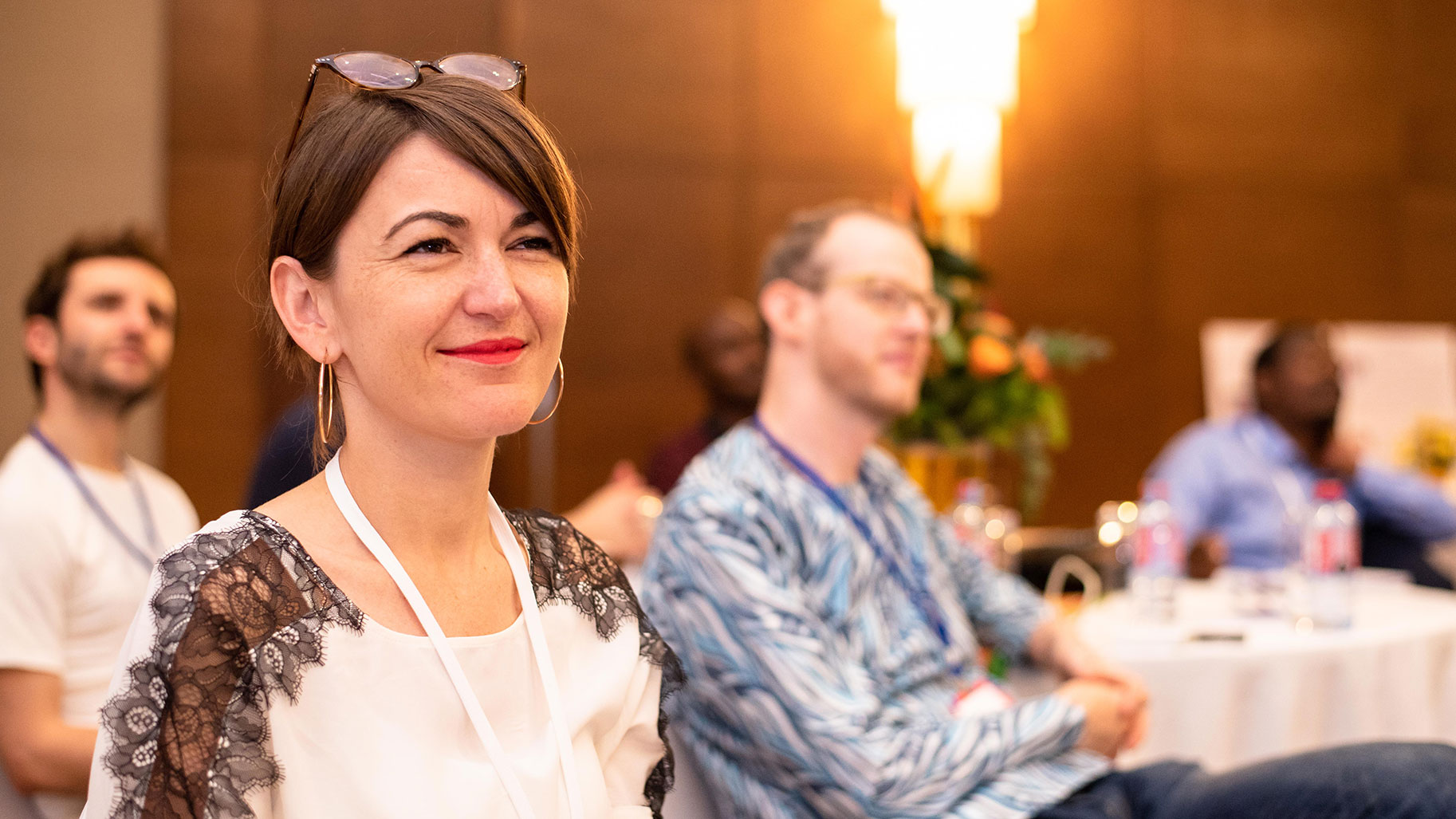Julie Josse: medical statistics of public interest
Date:
Changed on 26/11/2024

Julie Josse did not feel pre-destined for a career in statistics, but on joining an agricultural school as an engineer in 2007, she discovered a taste for this fascinating science that involves analysing data and correcting biases in order to extract precious information. Three years later, she obtained a PhD and a prize awarded by the Société Française de Statistique.
“This distinction opened up the doors to the prestigious American university of Stanford as a guest researcher”, she says. “Over a period of five years, I was able to spend a total of 18 months there. I attended lectures delivered by top scientists and carried out my work in a fabulously stimulating intellectual environment. I’ve kept in touch and now send some of my postdoctoral students there.”
She received her first proposal for a health research topic in 2016, when the Traumabase group, a network of clinician-researchers involved in the care of severely traumatised patients, requested her help. “Diagnosis errors were too frequent when such patients were admitted to A&E”, explains Julie Josse. “Because the information on their state of health was collected by highly stressed ambulance staff and was incomplete, sometimes containing errors, and noted on paper that was re-used by multiple hospital staff.” But when dealing with multiple trauma, every minute counts, as patients’ chances of recovery, their autonomy, their very lives, are at stake.
An ambitious research project, TrauMatrix, was therefore launched. The ongoing study is managed jointly by Julie Josse and her team, along with a group of clinicians from the Traumabase group, and entered its clinical trial phase in 2024. For six months, at 16 emergency medical service call centres serving 22 million residents across France, half of the ambulances are testing a smartphone app for the input of information about multiple trauma patients. The app is connected to a tool based on machine learning.
“Everyone will share the same information. In addition, the tool makes a real-time prediction of the patient’s needs, such as the treatment of bleeding, neurosurgery, or admission to intensive care. These results come with a confidence factor, as the tool also measures the degree of uncertainty.”
A project like Traumatrix illustrates to perfection the power of statistics and machine learning in the health sector; it provides conclusions of key importance to patients and medical staff, even when the information is incomplete, uneven or excessive. This explains why Julie Josse is in such demand as a reference on these subjects.
In 2020, when she had just been recruited by Inria, Julie Josse was contacted by an intensive care doctor. The Covid pandemic had sky-rocketed, intensive care units were overflowing and doctors no longer knew where to send patients. At the head of an ad hoc Inria - École Polytechnique team, she developed a very precious tool in just five days, for use by intensive care units to input information about incoming and outgoing patients on a continuous basis. The statistics then made it possible to predict availability a few days ahead. The tool was rolled out in 40 French departments. “To get it done that quickly, we didn’t sleep much”, she smiles. “And Inria provided us with some amazing resources and expertise. I had barely arrived and I was very impressed.”
Two years later, she created the joint Inria and Inserm Premedical research team, which now boasts 22 members. Inserm provided her with access to the clinician community, particularly in university hospitals: “To work on our topics, those contacts are essential.”
Today, Julie Josse is working on a number of topics. She is helping a start-up to optimise the dose of hormones injected during IVF (in vitro fertilisation), and another to adjust treatments to individual patients of certain neurodegenerative diseases. “While seeking in both cases to reduce side effects.” She is submitting projects to explore the link between respiratory illnesses - such as asthma - and social and environmental factors.
Lastly, since 2019, she has been studying how statistics and machine learning can make clinical trials more reliable and more representative of the overall population, in order to reduce their number and their cost. “I want my work to serve as many people as possible and to be fairly generic in order to meet multiple challenges”, she emphasises with conviction. In other words, she aims to serve the public interest.
2004: Degree in mathematics applied to social sciences at the University of Brest
2006: Master’s in applied statistics at the University of Rennes
2007: Statistics Engineer at Agrocampus (Rennes)
2010: PhD in statistics at Agrocampus and best thesis prize from the Société Française de Statistique
2011-2015: Associate Professor in the Agrocampus Statistics Department
2016: HDR in statistics from the University of Orsay
2016-2020: Professor at the École Polytechnique
2020: Became Director of Research at Inria
2022: Creation of the Inria-Inserm Premedical team, of which she is manager.
For experts